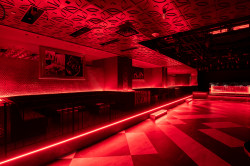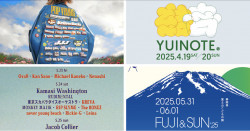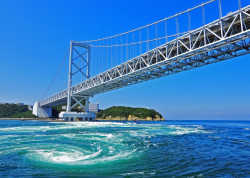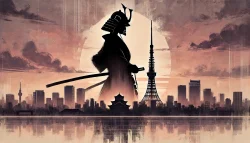
October 11, 2012
Festival/Tokyo 2012
Japan’s marquee theater fest defends free speech post-3/11
Originally published on metropolis.co.jp on October 2012

The producer of Japan’s foremost stage showcase sees a cloud descending on free expression in the country.
“In recent Japanese media… we can see a critical and dangerous increase in one-sided denunciations of risk-taking artists and art,” says program director Chiaki Soma in her notes for F/T12.
To combat what she sees as a “nonchalant oppression,” Soma has cobbled together a hard-hitting lineup of political theater for the fest’s fifth edition.
Born as part of Tokyo Governor Shintaro Ishihara’s Tokyo Culture Creation Project—an attempt to boost the city’s Olympic bid by positioning Tokyo as a “city of global cultural creativity”—F/T, under Soma’s direction, is becoming a rather provocative event. The festival’s liberal political aims might even put it into conflict with Ishihara’s right-wing views.
“It is my hope that F/T12, through all the artists and creativity gathered there,” she writes, “become the first step in redefining new relations between artistic expression and journalism in the future.”
F/T12 unfurls over a month from Ikebukuro’s newly renovated Tokyo Metropolitan Theatre to black-box theaters, plazas and parks around the city. Metropolis offers some highlights, and performances with English subtitles.
Le Préau d’un Seul
[pictured above]
Fear of immigrants real and imagined is a dominant theme of the times—in Japan immigration is restricted despite its promise to ease a demographic time bomb. French director Jean Michel Bruyère’s Le Préau d’un Seul (“The prison of the one”) takes us inside the experience of the “other” by reconstructing a European internment camp where illegals are detained. The installation will take over the whole of the Nishi-Sugamo Arts Factory for the kind of site-specific extravaganza rarely seen in Tokyo. Will visitors be reminded of the dire situation faced by some of Japan’s own detainees…?
Nishi-Sugamo Arts Factory, Oct 27-Nov 4.

DAH-DAH-SKO-DAH-DAH
Perhaps Japan’s most influential choreographer, Saburo Teshigawara revisits a landmark piece inspired by Tohoku poet Kenji Miyazawa. Premiering in 1991, DAH-DAH-SKO-DAH-DAH looks back to a time of raw sound that came before the birth of music. Simultaneously in charge of the choreography, stage design and lighting for his works, Teshigawara fuses movement, aesthetics and intellect into a seamless whole. His pieces are always audiovisual treats and represent Japanese contemporary dance at its most elegant.
Tokyo Metropolitan Theatre, Nov 23-25.
Kein Licht II
For F/T12, Nobel Laureate author Elfriede Jelinek and director Akira Takayama return to Fukushima, a subject both took up last year—Takayama in his traveling Referendum Project and Jelinek in Kein Licht (“No Light”). Created in March 2012, Kein Licht II is a follow-up in which the Austrian playwright employs the words of tragic Greek heroine Antigone as a symbol of the eternal struggle against power. In Takayama’s hands the text becomes a fictional “Fukushima tour” in which participants experience Jelinek’s words with images of Fukushima superimposed over familiar Tokyo landscapes. The production is in German but features strong visual elements.
Various venues, Nov 10-24.

Castle of Dreams
F/T presents a revival of a major play by probably the dominant playwright of his generation. 37-year-old Daisuke Miura’s wordless Castle of Dreams depicts a group of eight “inert and animalized” young Japanese who inhabit a filthy “one-room mansion,” spending their days in an endless, silent orgy of sleeping, eating, fighting and having sex. Miura’s award-winning depiction of contemporary Japan returns after six years, during which it was staged in Europe and North America.
Tokyo Metropolitan Theatre, Nov 15-25.
The Absence of Neighbor Jimmy
Emerging 30-year-old director Yudai Kamisato grasps the bull by the horns, taking on Japan’s thorny relations with its neighbors in a new work to receive its world premiere at F/T. Details are still sketchy, but Peru-born Kamisato visited Korea to build a piece that digests the “fear and confusion” of an encounter with an unknown neighboring country. The Absence of Neighbor Jimmy follows on from last year’s Hemispherical Red and Black in looking at issues of immigration in Kamisato’s typically frenetic physical style.
Owlspot Theater, Nov 2-6.

Gay Romeo
Part of F/T’s Emerging Artists Program, this documentary dance-theater work is performed in English and should prove engaging for non-Japanese audiences. Singaporean Daniel Kok’s interactive piece enacts dates he goes on with men he meets on the website gayromeo.com—the twist is that Kok will choose his dates from members of the audience. While Japan may not criminalize homosexuality like Singapore, this piece could make for some pretty uncomfortable scenes for the unprepared.
Theater Green Big Tree Theater, Nov 16-18.







